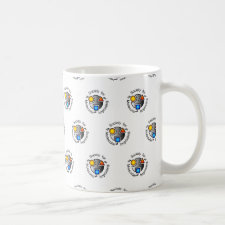
Authors: Gao BJ, Wang J, Yang Y
Article Title: Studies of Imprinting Conditions and Application Performance of Pirimicarb Molecule-Imprinted Material Prepared Using a Novel Surface-Imprinting Technique.
Publication date: 2009
Journal: Chromatographia
Volume: 69
Issue: (11)
Page numbers: 1353-1361.
DOI: 10.1365/s10337-009-1062-7
Abstract: Abstract: Methacrylic acid (MAA) was graft-polymerized on to the surface of silica gel particles in the “grafting from” manner, resulting in grafted PMAA/SiO2 particles. By adopting the novel surface molecular imprinting technique proposed by us not long ago, pirimicarb molecule-imprinted material MIP-PMAA/SiO2 was prepared with ethylene glycol diglycidyl ether (EGGE) as crosslinking agent. The effects of imprinting conditions, for example pH of the medium, solvent composition, and reactant ratio, on the recognition selectivity of MIP-PMAA/SiO2 for pirimicarb relative to the analog, propoxur, were examined, and the optimum imprinting conditions were determined. The dependence of the rebinding ability of MIP-PMAA/SiO2 for pirimicarb on the performance conditions, for example pH and salinity of the medium, were also studied. The experimental results showed that optimum imprinting conditions for preparing pirimicarb molecule-imprinted MIP-PMAA/SiO2 material with high recognition selectivity were: solvent pH 8, mixed solvent composition 1:1 (v/v) ethanol to water, and 3:1 reactant molar ratio of carboxyl groups of the grafted PMAA to the crosslinking agent EGGE. This reactant ratio is consistent with the speculated mode of intermolecular interaction between the grafted functional macromolecule PMAA and the template pirimicarb. The rebinding ability of MIP-PMAA/SiO2 for pirimicarb is highly dependent on the performance conditions. At medium pH 8, MIP-PMAA/SiO2 has the strongest binding ability for pirimicarb because this condition results in the greatest the number of active sites inside the imprinted cavities suitable for the binding of pirimicarb. A saline, i.e., high ionic strength, medium is disadvantageous to rebinding ability of MIP-PMAA/SiO2 for pirimicarb
Template and target information: pirimicarb



Join the Society for Molecular Imprinting

New items RSS feed
Sign-up for e-mail updates:
Choose between receiving an occasional newsletter or more frequent e-mail alerts.
Click here to go to the sign-up page.
Is your name elemental or peptidic? Enter your name and find out by clicking either of the buttons below!
Other products you may like:
 MIPdatabase
MIPdatabase









